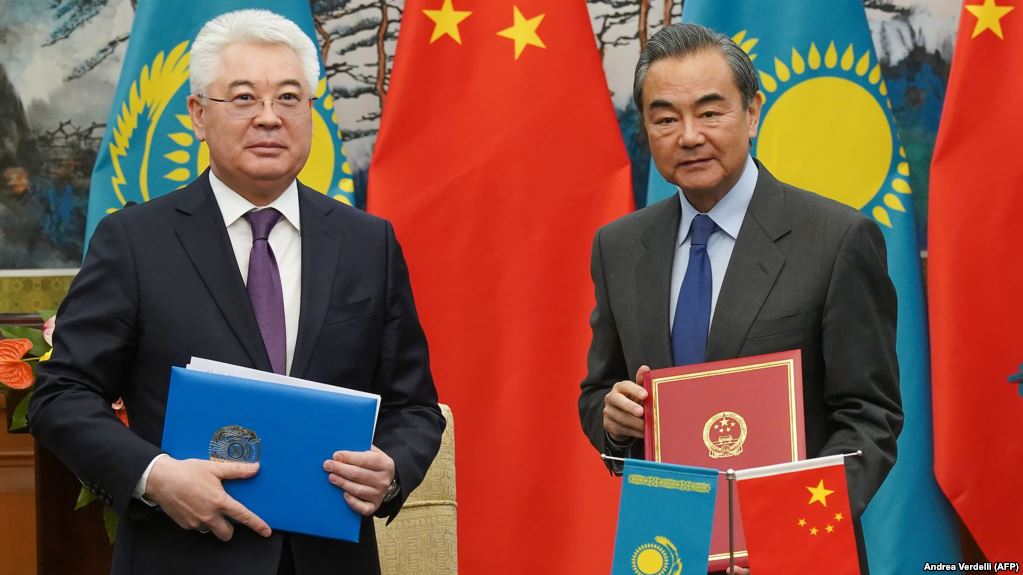Special to WorldTribune.com
Radio Free Europe / Radio Liberty
China has thanked Kazakhstan for supporting its crackdown on the restive far-west region of Xinjiang, where Beijing is accused of rights abuses against indigenous ethnic groups, including Kazakhs.

China has been under criticism for operating internment camps for Uyghurs, Kazakhs, and other mostly Muslim groups in Xinjiang.
A report by a UN panel of experts last year said that an estimated 1 million of them were being held in “counterextremism centers.”
They said millions more had been forced into reeducation camps.
Beijing has insisted that the facilities are not internment camps, but “vocational education centers” aimed at helping people steer clear of terrorism and allow them to be reintegrated into society.
On March 28, Chinese Foreign Minister Wang Yi met Kazakhstan counterpart Beibut Atamkulov in Beijing.
According to a statement by the Chinese Foreign Ministry, Atamkulov said his country “understands and supports the measures taken by China’s Xinjiang region” to tackle terrorism, separatism and extremism.
“We appreciated the Kazakh government’s understanding and support for China’s position, and we will never let any person or any force damage the friendship and mutual trust between China and Kazakhstan,” Wang said, according to the statement.
Kazakhstan’s Foreign Ministry did not mention Xinjiang in its statement on Atamkulov’s visit to China. But a March 28 statement by the ministry said that “the issue of the situation with ethnic Kazakhs living in the People’s Republic of China” was also discussed.
Turkic-speaking, mostly Muslim Kazakhs are the second-largest indigenous community in Xinjiang after Uyghurs, and the region is also home to ethnic Kyrgyz, Tajiks, and Hui, also known as Dungans.
China is a major trading partner for neighboring Kazakhstan, where authorities and state-controlled media have generally avoided the issue of the internment camps.
Kazakh police this month detained a naturalized Kazakh citizen, Xinjiang native Serikzhan Bilash, who has campaigned on behalf of ethnic Kazakhs in China, and charged him with inciting ethnic hatred.
In October, an ethnic Kazakh Chinese national, Sayragul Sauytbay, who escaped China and whose court testimony described a secretive network of reeducation camps, was denied political asylum in Kazakhstan, where her family lives.
In recent months, several demonstrations protesting against the reeducation camps for Muslims were held in Kazakhstan, Kyrgyzstan, and Russia’s Republic of Tatarstan.
